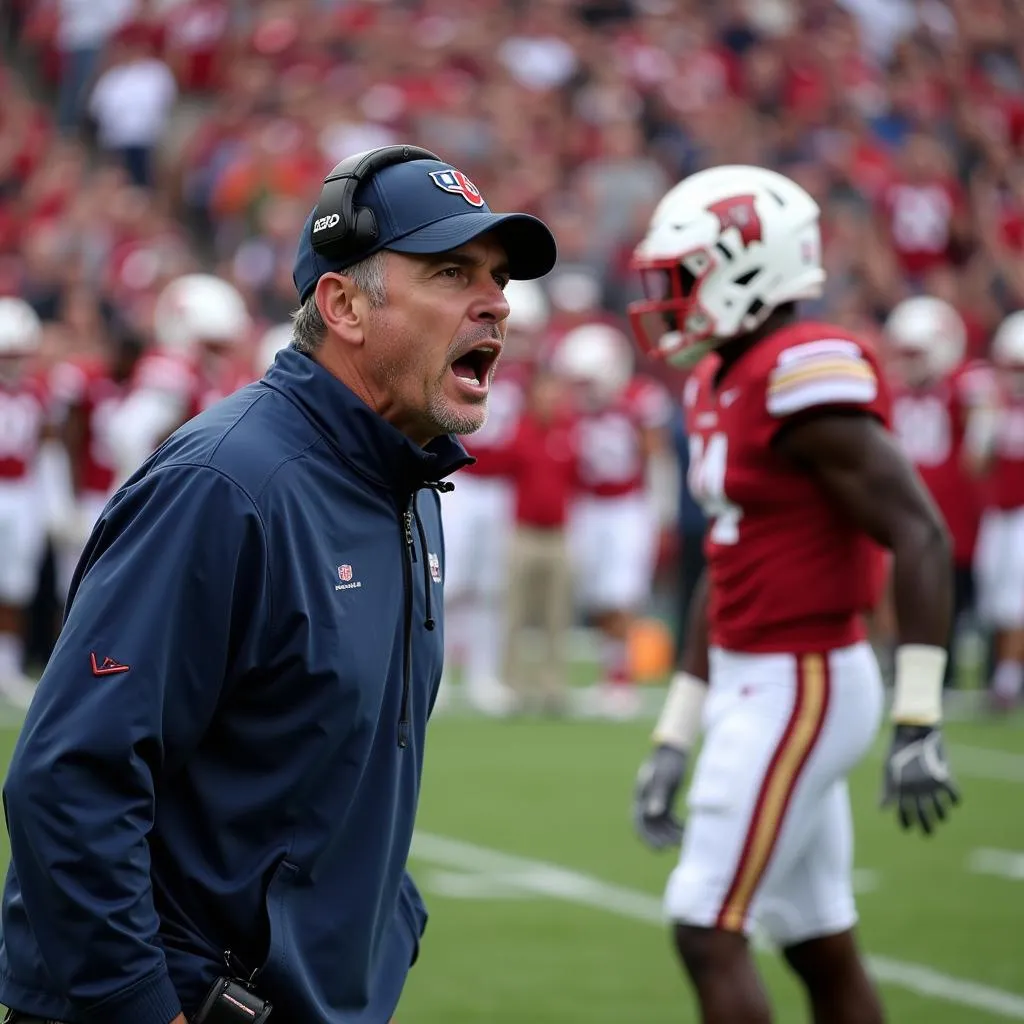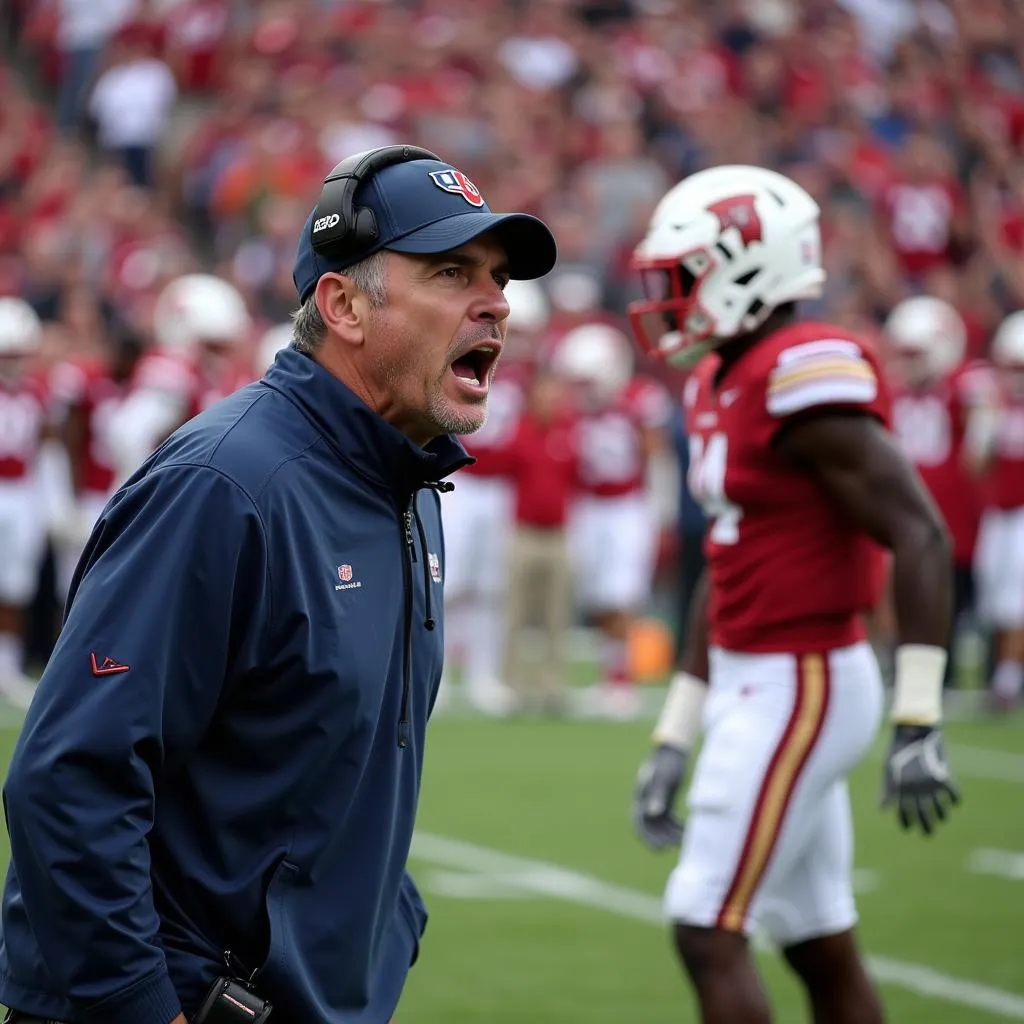Why College Football Sucks: A Deep Dive into the Controversies
October 9, 2024College football holds a special place in the hearts of many Americans, but there’s a growing sentiment that “College Football Sucks.” This article delves into the controversies and criticisms surrounding this beloved sport, exploring the reasons behind this discontent.
 Huấn luyện viên la mắng cầu thủ bóng đá đại học
Huấn luyện viên la mắng cầu thủ bóng đá đại học
The Exploitation of Student-Athletes: A System Rife with Imbalance
One of the most significant criticisms leveled at college football is the exploitation of student-athletes. These young men, often from disadvantaged backgrounds, dedicate countless hours to their sport, generating enormous revenue for their universities and the NCAA. Yet, they receive no salaries, only scholarships that barely cover the cost of attendance.
This system raises serious ethical concerns. While coaches rake in multi-million dollar salaries and universities construct state-of-the-art facilities, the very individuals responsible for this success struggle financially. The argument that a college education is sufficient compensation rings hollow when considering the sacrifices and potential earning power these athletes forego.
The Pressure Cooker Environment: Mental Health Takes a Backseat
The intense pressure to perform at the highest level takes a toll on the mental health of college football players. The constant scrutiny, grueling schedules, and fear of losing their scholarship create an environment ripe for anxiety, depression, and burnout.
 Cầu thủ bóng đá đại học cảm thấy áp lực và lo lắng
Cầu thủ bóng đá đại học cảm thấy áp lực và lo lắng
Furthermore, the “win-at-all-costs” mentality often overshadows the well-being of these young athletes. Injuries, especially concussions, are often downplayed or ignored, potentially leading to long-term health consequences. The lack of adequate mental health resources and support systems further exacerbates this issue.
The Illusion of Amateurism: A Lucrative Business Masquerading as Sport
Despite the NCAA’s insistence on amateurism, college football has morphed into a multi-billion dollar industry. Television contracts, merchandise sales, and lucrative sponsorship deals have transformed the sport into a business, blurring the lines between amateur athletics and professional entertainment.
This commercialization raises questions about the NCAA’s priorities. Is the organization truly invested in the well-being and education of student-athletes, or is it more concerned with protecting its bottom line? The lack of transparency and accountability within the NCAA fuels skepticism and reinforces the perception that college football prioritizes profit over its participants.
Conclusion: A Call for Reform and a More Equitable Future
While college football offers moments of excitement and camaraderie, the underlying issues of exploitation, mental health concerns, and unchecked commercialism cast a dark shadow over the sport. “College football sucks” not because of the game itself, but because of the flawed system that governs it.
It’s time for a paradigm shift, one that prioritizes the well-being and fair treatment of student-athletes. Reforms addressing athlete compensation, mental health support, and increased transparency within the NCAA are crucial for the long-term health and sustainability of college football.
